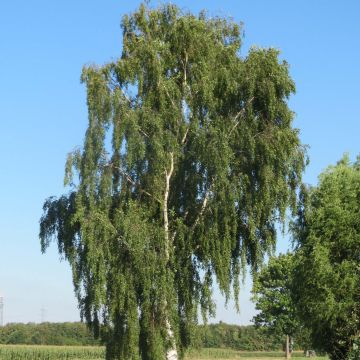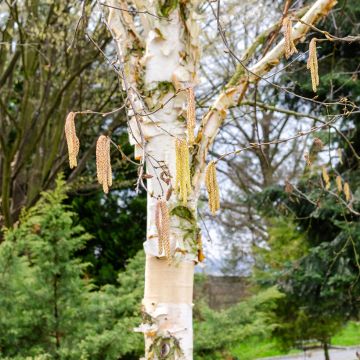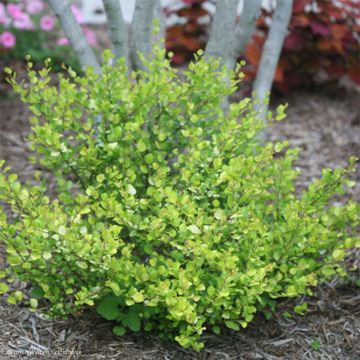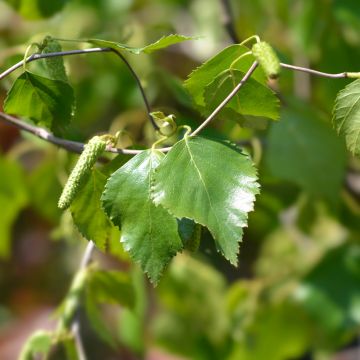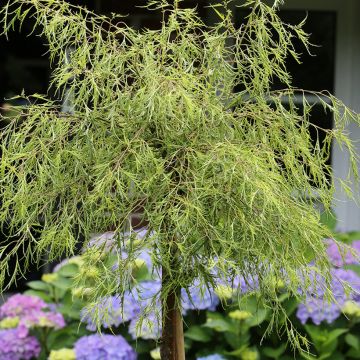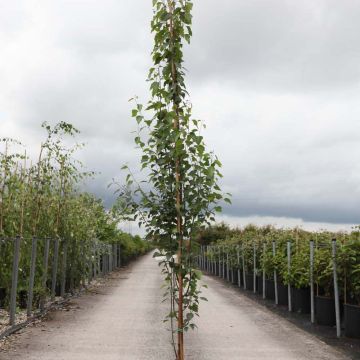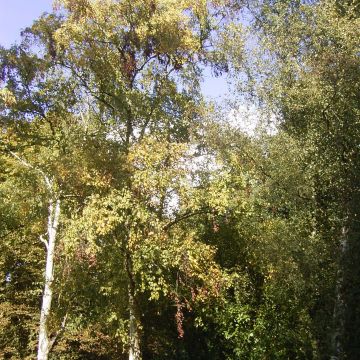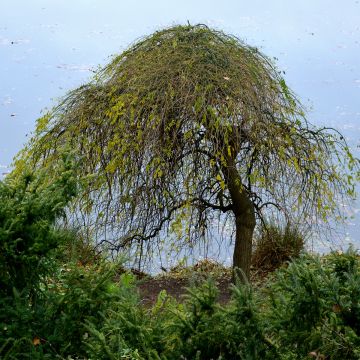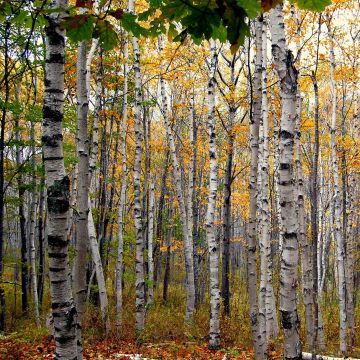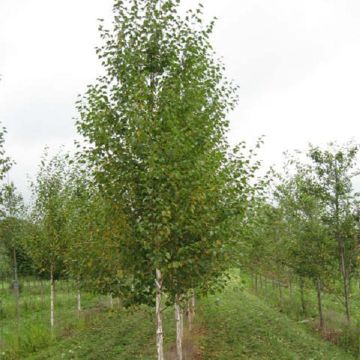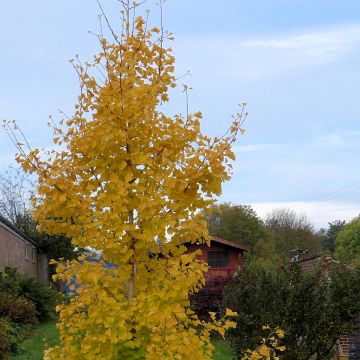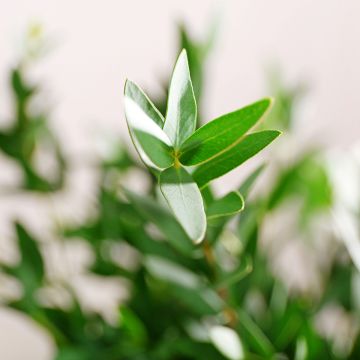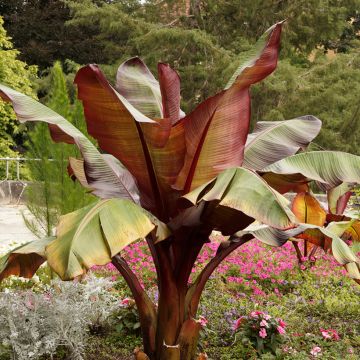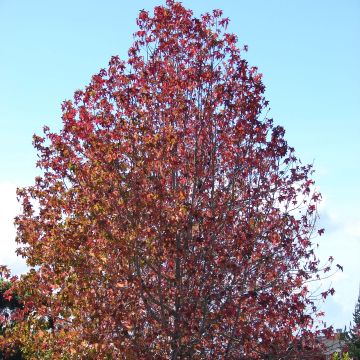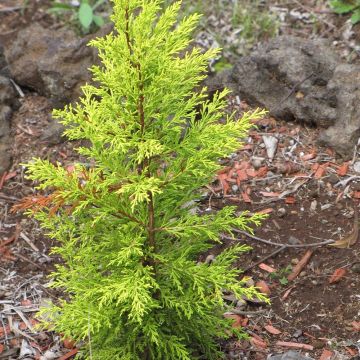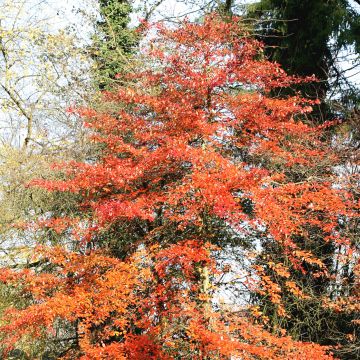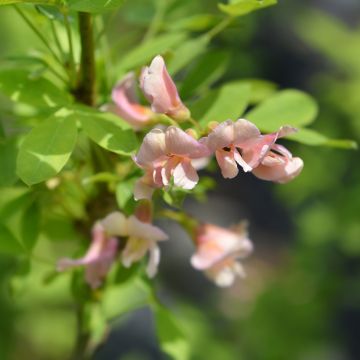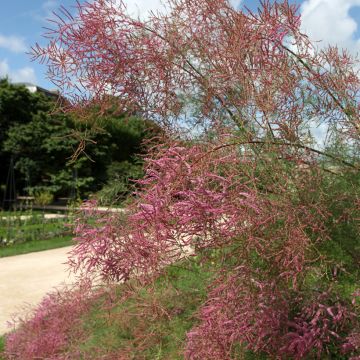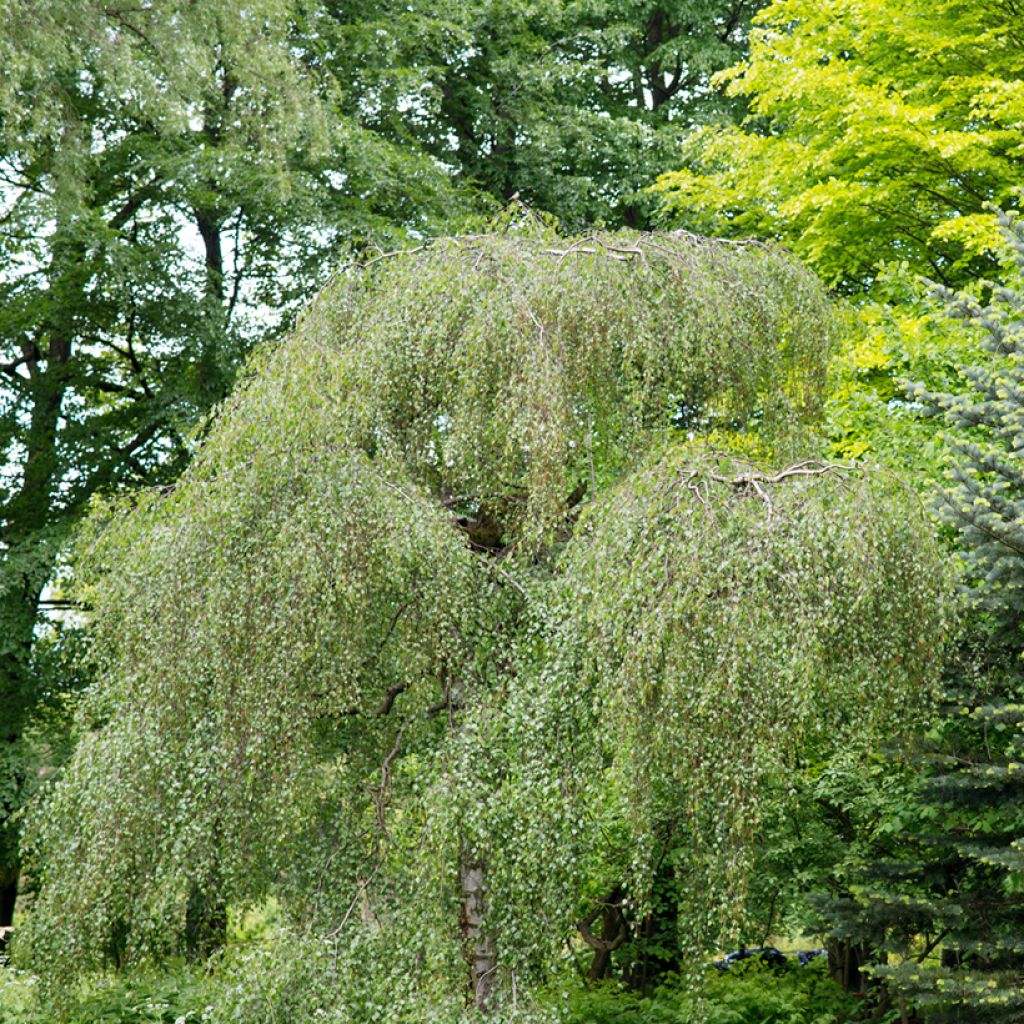

Betula pendula Youngii - Birch
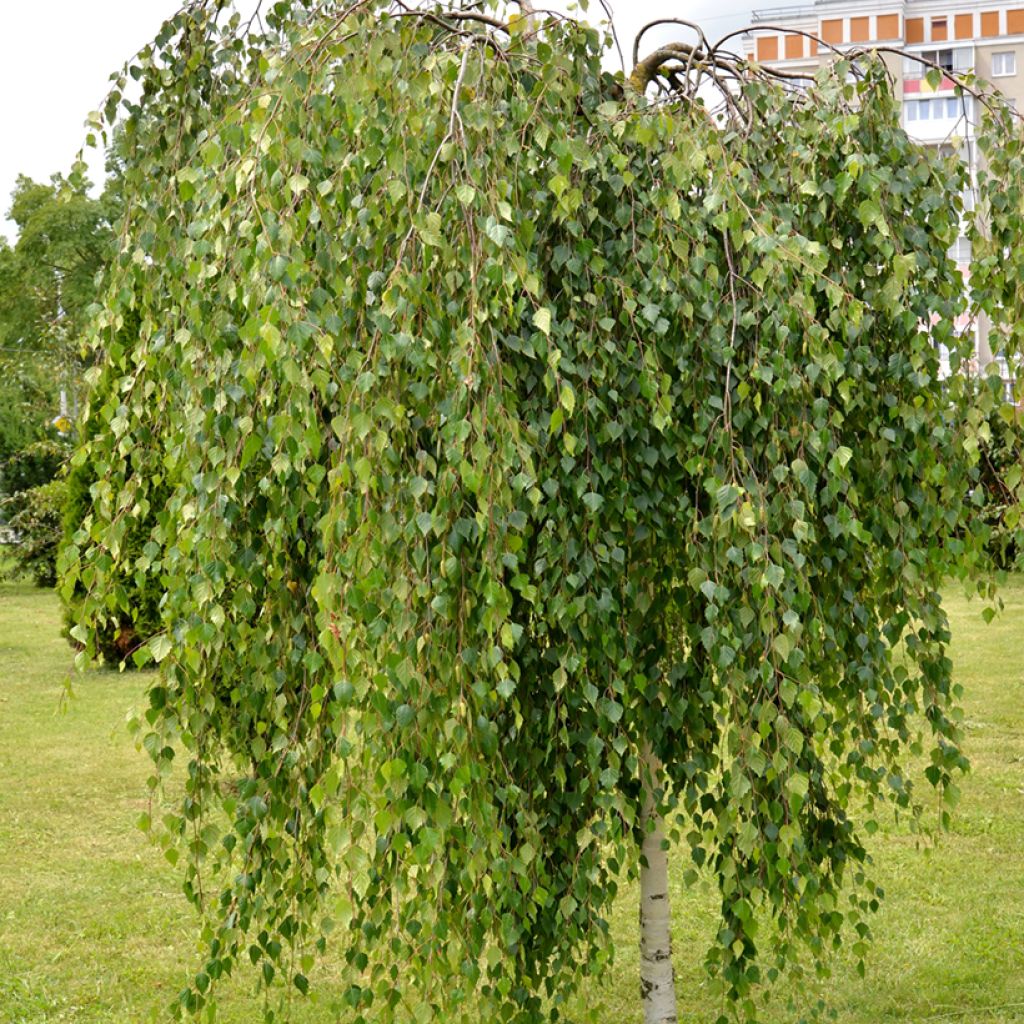

Betula pendula Youngii - Birch
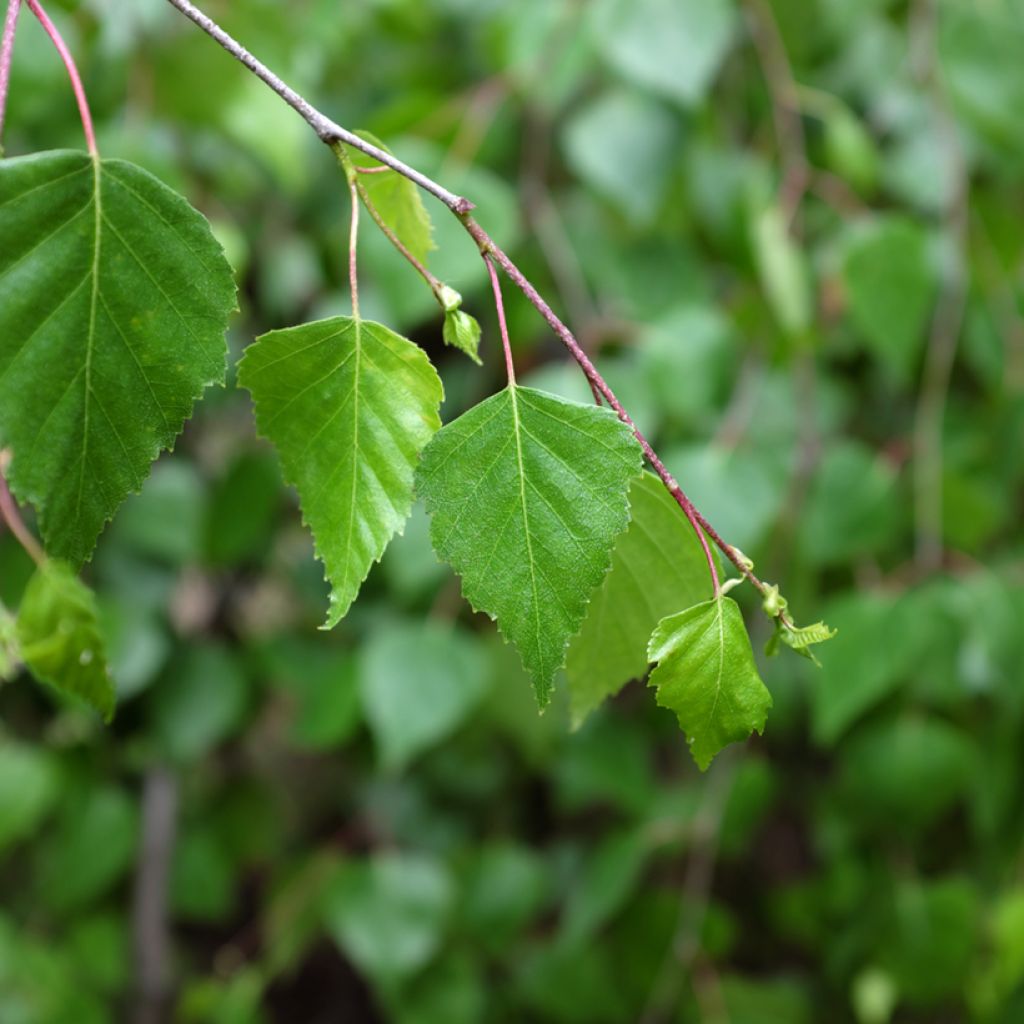

Betula pendula Youngii - Birch
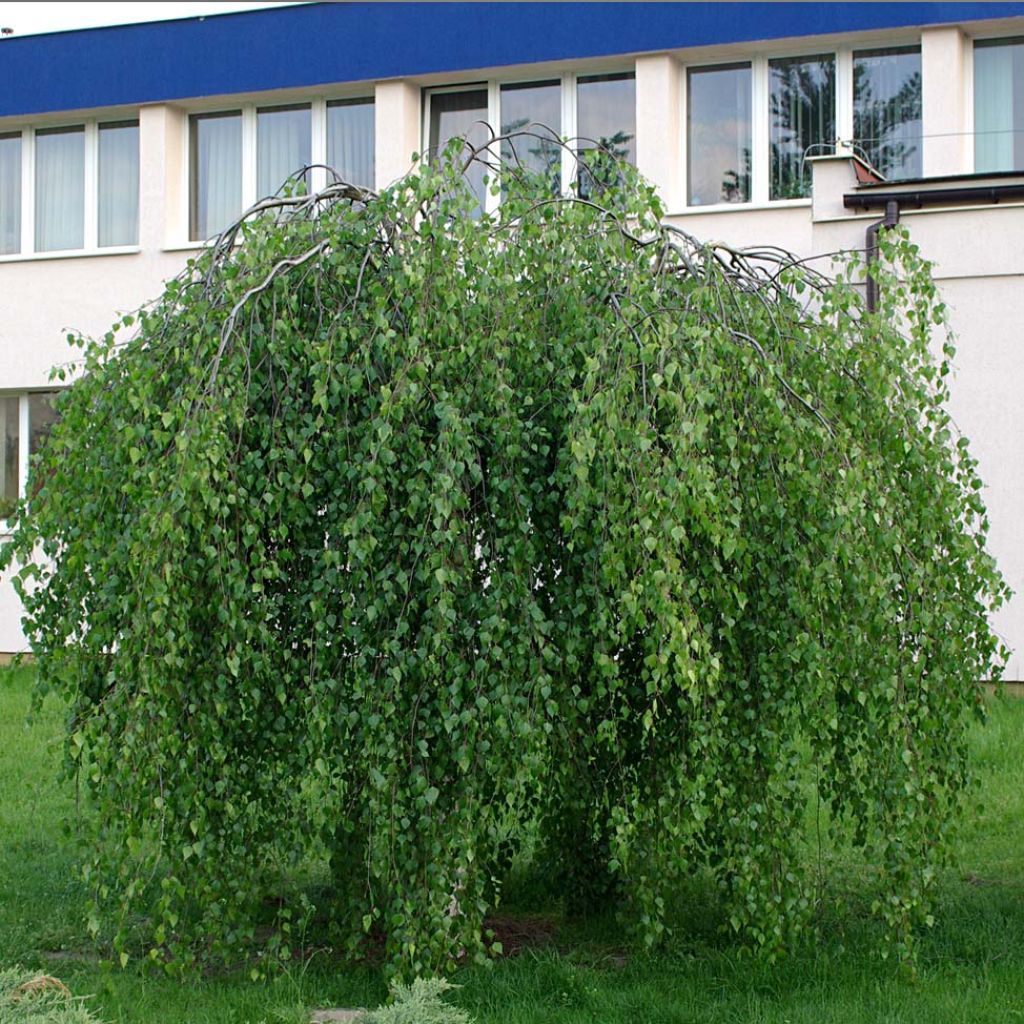

Betula pendula Youngii - Birch
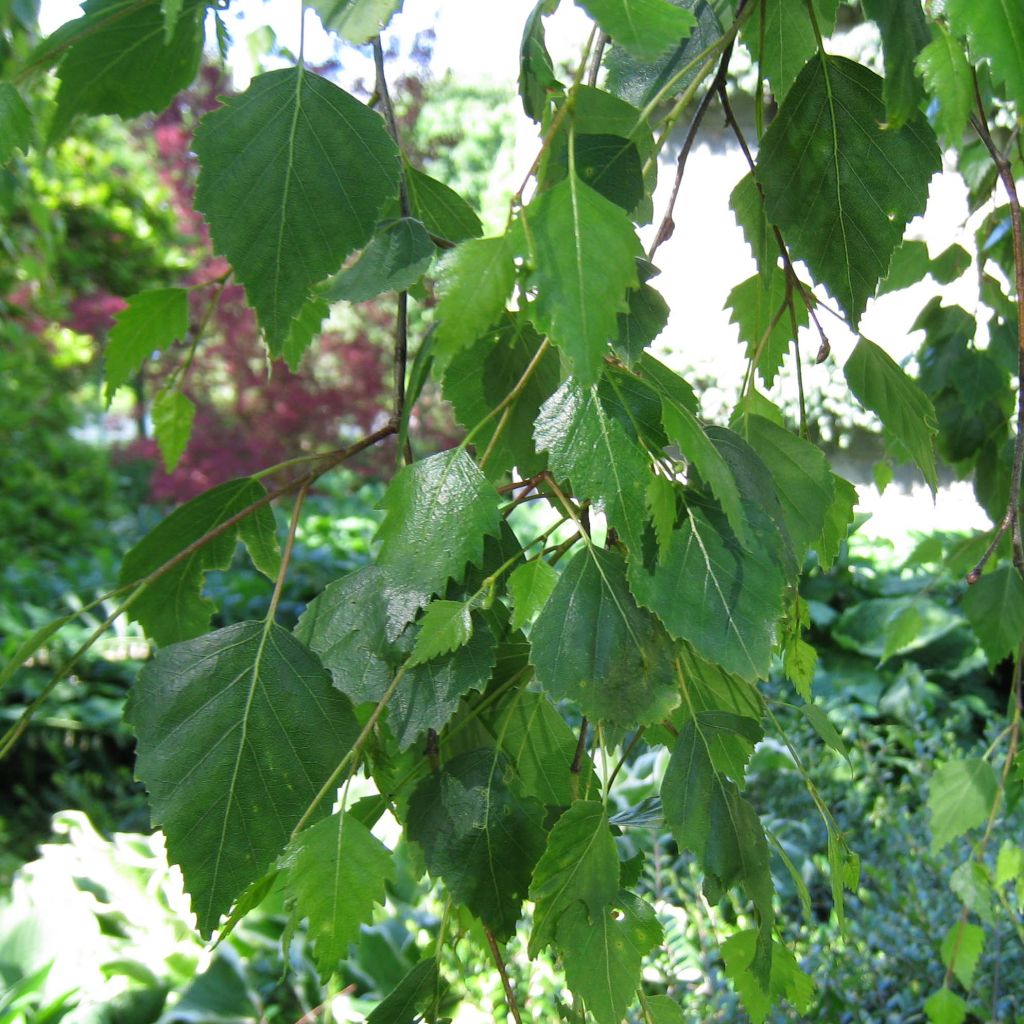

Betula pendula Youngii - Birch
Betula pendula Youngii - Birch
Betula pendula Youngii
Silver Birch
Lovely plant, large and vigorous, great appearance. Package well wrapped. Very satisfied.
Golestan, 30/11/2024
Special offer!
Receive a €20 voucher for any order over €90 (excluding delivery costs, credit notes, and plastic-free options)!
1- Add your favorite plants to your cart.
2- Once you have reached €90, confirm your order (you can even choose the delivery date!).
3- As soon as your order is shipped, you will receive an email containing your voucher code, valid for 3 months (90 days).
Your voucher is unique and can only be used once, for any order with a minimum value of €20, excluding delivery costs.
Can be combined with other current offers, non-divisible and non-refundable.
Home or relay delivery (depending on size and destination)
Schedule delivery date,
and select date in basket
This plant carries a 24 months recovery warranty
More information
We guarantee the quality of our plants for a full growing cycle, and will replace at our expense any plant that fails to recover under normal climatic and planting conditions.

Would this plant suit my garden?
Set up your Plantfit profile →
Description
Betula pendula 'Youngii', a weeping birch with moderate growth, will become the centrepiece of the garden, even in limited space. With a wide, compact, and graceful habit, it captivates with its slender, unbowed branches, giving it an umbrella-like appearance, even in winter when it is leafless. Its bright green cascading foliage turns yellow in autumn, transforming it into a fountain of gold against its beautiful white-silver bark. This unusual small tree, a true vegetal sculpture, deserves a prominent place in a romantic, or even Japanese-inspired setting. Fully hardy and disease-resistant, it adapts to both wet and dry, poor soils but dislikes excessive limestone presence in the soil.
Native to mainly central Europe and temperate Asia, Betula pendula (synonym B. verrucosa), commonly known as the Silver Birch, is a large-growing tree of the Betulaceae family. This light-loving species naturally has a pyramidal habit, a more or less straight trunk, and a generally oval crown carried by long, almost upright branches with pendulous twigs at an acute angle. Its growth rate is quite fast. It is extremely cold-resistant.
The cultivar 'Youngii', born in England around 1870, is mainly distinguished by its smaller size, and its wide and particularly weeping habit. It will reach an average of 5 m (16.4 ft) in all directions. The silhouette is generally rounded, irregular, and dense. The white bark exfoliates and, over time, becomes darker and more channelled at the base of the trunk, with deep crevices. The pendulous twigs are reddish-brown and speckled with verrucate lenticels. The deciduous foliage appears early in spring and tends to completely conceal the trunk. It consists of triangular leaves, 3 cm to 6 cm (1.2 in to 2.4 in) long, with toothed edges, and a tender green colour. They turn a vibrant yellow before falling. The flowering, in the form of catkins, is discreet. This birch produces radiating lateral tap roots with a very dense network of small surface feeder roots.
'Youngii' is a sculptural tree with a modest stature for a birch, perfect for small gardens. Superbly structured, its white and somewhat mysterious silhouette stands out beautifully against a winter sky or at the corner of a terrace. In the garden, it requires no maintenance. It deserves a prominent place, visible from the house. To cover the base of this tree, which dries out the soil during the growing season, it is advisable to choose plants adapted to these conditions: heathers, small grasses like Stipa pennata or tenuifolia, Carex, Ophiopogon. It can also be planted in front of a grove of trees chosen for their foliage or decorative bark, such as Acer griseum or Betula albosinensis. Maples, Nysa sylvatica, Caramel tree, Chinese Mahogany, or even a white willow will create a beautiful backdrop for this superb plant specimen.
Report an error about the product description
Betula pendula Youngii - Birch in pictures
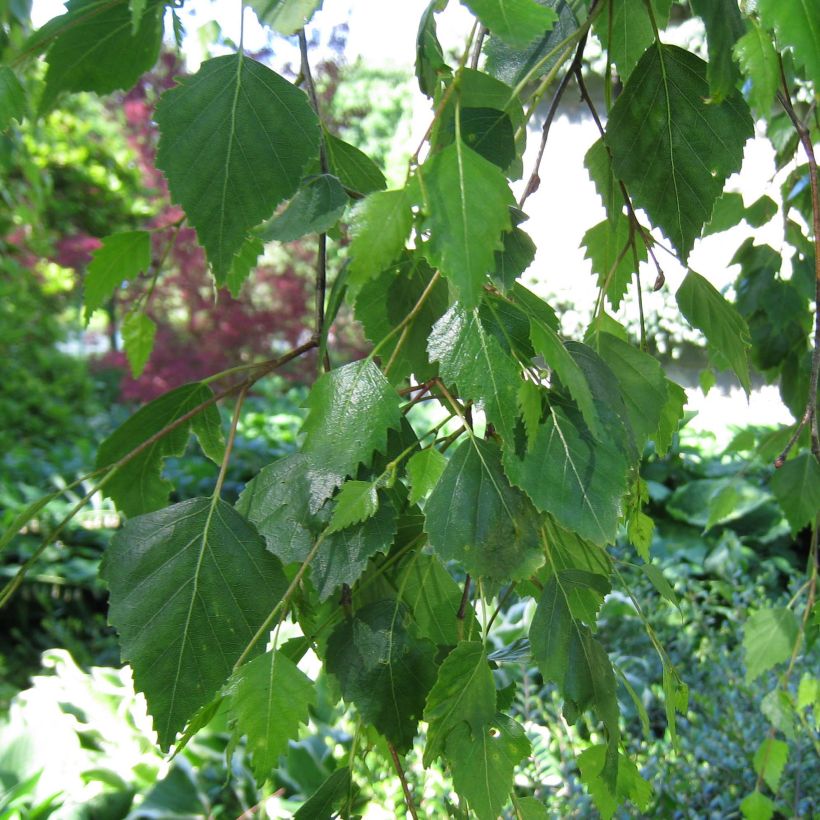

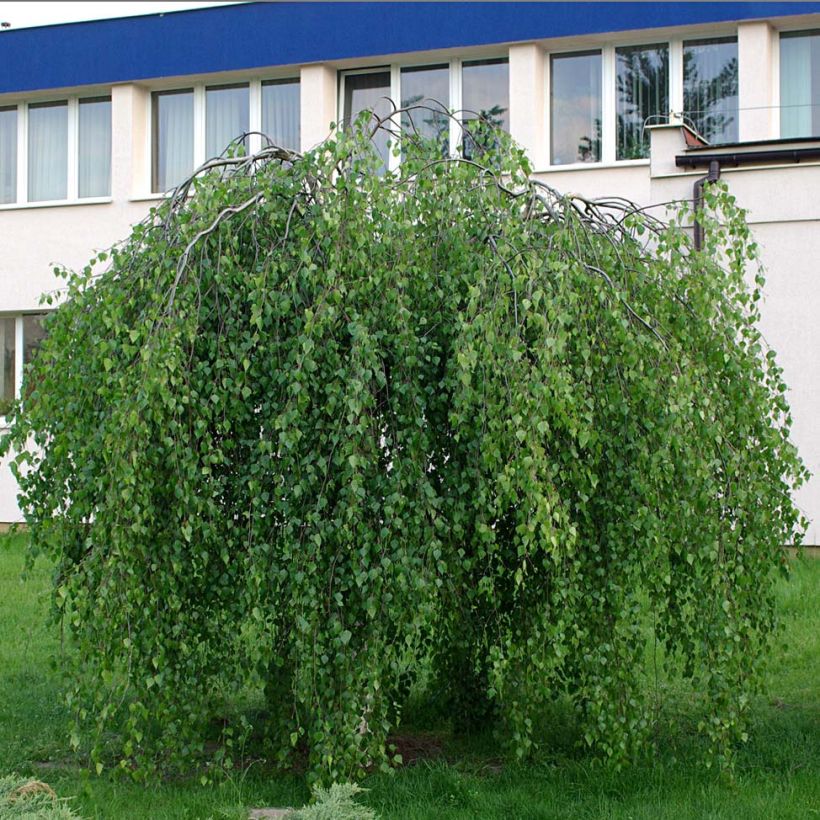

Plant habit
Flowering
Foliage
Safety measures
Botanical data
Betula
pendula
Youngii
Betulaceae
Silver Birch
Cultivar or hybrid
atteinterespiratoire
Cette plante peut entraîner des symptômes allergiques.
Evitez de la planter si vous ou vos proches souffrez de rhinite saisonnière ("rhume des foins").
Davantage d'informations sur https://plantes-risque.info
Other Betula - Birch tree
View all →Planting and care
Easy to grow, it requires little maintenance and does not need pruning. It should be planted in preferably moist soil, low in limestone, humus-rich, and slightly acidic to achieve beautiful foliage colourations, but it will also thrive in neutral to slightly alkaline soil, in full sun or partial shade. It tolerates clayey, loamy, sandy, peaty and nutrient-poor soils, as well as occasional dryness. This tree produces numerous shallow roots that can hinder the growth of other plants under its crown, by drying out and depleting the soil. It is not tolerant to salt spray.
Planting period
Intended location
Care
-
, onOrder confirmed
Reply from on Promesse de fleurs
Similar products
Haven't found what you were looking for?
Hardiness is the lowest winter temperature a plant can endure without suffering serious damage or even dying. However, hardiness is affected by location (a sheltered area, such as a patio), protection (winter cover) and soil type (hardiness is improved by well-drained soil).

Photo Sharing Terms & Conditions
In order to encourage gardeners to interact and share their experiences, Promesse de fleurs offers various media enabling content to be uploaded onto its Site - in particular via the ‘Photo sharing’ module.
The User agrees to refrain from:
- Posting any content that is illegal, prejudicial, insulting, racist, inciteful to hatred, revisionist, contrary to public decency, that infringes on privacy or on the privacy rights of third parties, in particular the publicity rights of persons and goods, intellectual property rights, or the right to privacy.
- Submitting content on behalf of a third party;
- Impersonate the identity of a third party and/or publish any personal information about a third party;
In general, the User undertakes to refrain from any unethical behaviour.
All Content (in particular text, comments, files, images, photos, videos, creative works, etc.), which may be subject to property or intellectual property rights, image or other private rights, shall remain the property of the User, subject to the limited rights granted by the terms of the licence granted by Promesse de fleurs as stated below. Users are at liberty to publish or not to publish such Content on the Site, notably via the ‘Photo Sharing’ facility, and accept that this Content shall be made public and freely accessible, notably on the Internet.
Users further acknowledge, undertake to have ,and guarantee that they hold all necessary rights and permissions to publish such material on the Site, in particular with regard to the legislation in force pertaining to any privacy, property, intellectual property, image, or contractual rights, or rights of any other nature. By publishing such Content on the Site, Users acknowledge accepting full liability as publishers of the Content within the meaning of the law, and grant Promesse de fleurs, free of charge, an inclusive, worldwide licence for the said Content for the entire duration of its publication, including all reproduction, representation, up/downloading, displaying, performing, transmission, and storage rights.
Users also grant permission for their name to be linked to the Content and accept that this link may not always be made available.
By engaging in posting material, Users consent to their Content becoming automatically accessible on the Internet, in particular on other sites and/or blogs and/or web pages of the Promesse de fleurs site, including in particular social pages and the Promesse de fleurs catalogue.
Users may secure the removal of entrusted content free of charge by issuing a simple request via our contact form.
The flowering period indicated on our website applies to countries and regions located in USDA zone 8 (France, the United Kingdom, Ireland, the Netherlands, etc.)
It will vary according to where you live:
- In zones 9 to 10 (Italy, Spain, Greece, etc.), flowering will occur about 2 to 4 weeks earlier.
- In zones 6 to 7 (Germany, Poland, Slovenia, and lower mountainous regions), flowering will be delayed by 2 to 3 weeks.
- In zone 5 (Central Europe, Scandinavia), blooming will be delayed by 3 to 5 weeks.
In temperate climates, pruning of spring-flowering shrubs (forsythia, spireas, etc.) should be done just after flowering.
Pruning of summer-flowering shrubs (Indian Lilac, Perovskia, etc.) can be done in winter or spring.
In cold regions as well as with frost-sensitive plants, avoid pruning too early when severe frosts may still occur.
The planting period indicated on our website applies to countries and regions located in USDA zone 8 (France, United Kingdom, Ireland, Netherlands).
It will vary according to where you live:
- In Mediterranean zones (Marseille, Madrid, Milan, etc.), autumn and winter are the best planting periods.
- In continental zones (Strasbourg, Munich, Vienna, etc.), delay planting by 2 to 3 weeks in spring and bring it forward by 2 to 4 weeks in autumn.
- In mountainous regions (the Alps, Pyrenees, Carpathians, etc.), it is best to plant in late spring (May-June) or late summer (August-September).
The harvesting period indicated on our website applies to countries and regions in USDA zone 8 (France, England, Ireland, the Netherlands).
In colder areas (Scandinavia, Poland, Austria...) fruit and vegetable harvests are likely to be delayed by 3-4 weeks.
In warmer areas (Italy, Spain, Greece, etc.), harvesting will probably take place earlier, depending on weather conditions.
The sowing periods indicated on our website apply to countries and regions within USDA Zone 8 (France, UK, Ireland, Netherlands).
In colder areas (Scandinavia, Poland, Austria...), delay any outdoor sowing by 3-4 weeks, or sow under glass.
In warmer climes (Italy, Spain, Greece, etc.), bring outdoor sowing forward by a few weeks.






























